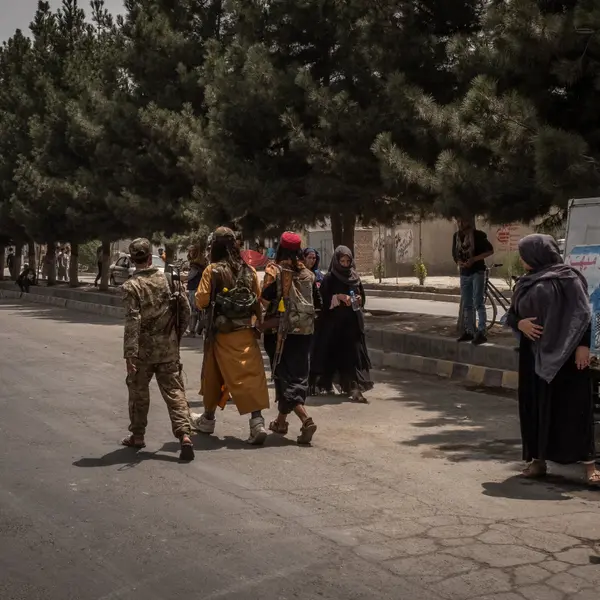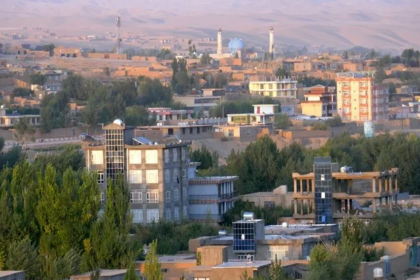RASC News Agency: On Wednesday, May 14, the Middle East Policy Institute convened a high-level virtual symposium, bringing together prominent American national security and diplomatic experts to scrutinize former President Donald Trump’s policy approach toward the Taliban and the potential however controversial of future U.S.-Taliban engagement under the guise of counterterrorism cooperation. The conversation was sparked by a symbolic yet provocative development: former President Trump’s recent meeting with Ahmed Shar’a, the interim Syrian president, in Riyadh. According to Douglas London, a former senior CIA officer and expert in intelligence and security strategy, this encounter has stirred quiet aspirations within the Taliban’s leadership raising the question among some factions: If Syria’s autocratic regime can secure a diplomatic channel with Washington, why can’t the Taliban?
London emphasized that such questions expose internal divisions within the Taliban. While elements of the group entertain the illusion of a diplomatic opening, supreme leader Hibatullah Akhundzada remains ideologically entrenched and categorically opposed to engagement with the West. His deep paranoia and obsession with maintaining Taliban absolutism, London noted, have obstructed even the most pragmatic voices within the group from exploring avenues of diplomacy. Among those pragmatic elements is Sirajuddin Haqqani, the Taliban’s powerful interior minister and head of the notorious Haqqani Network. According to London, Haqqani has shown an interest in engaging with U.S. officials particularly those aligned with Trump-era security thinking in hopes of lifting international sanctions and securing a veneer of legitimacy. Yet even Haqqani’s overtures are tainted by his group’s well-documented involvement in terrorism and criminal enterprise.
Javid Ahmad, former Afghanistani ambassador to the United Arab Emirates, also addressed the gathering. He stated unequivocally that the Taliban are actively seeking to normalize relations with the United States, not out of goodwill or reformist zeal, but as a calculated strategy to escape the grip of crippling sanctions and international isolation. Ahmad insisted that such efforts are disingenuous and should not be rewarded. “Any move toward normalization must be conditioned upon verifiable and irreversible changes in the Taliban’s policies particularly their treatment of women, their refusal to form an inclusive government, and their continuing links to extremist groups,” Ahmad stressed. “So far, they have done the opposite tightening their grip on power through brutality and exclusion.”
Ahmad also highlighted the Taliban’s duplicitous posture regarding humanitarian aid. While the regime claims to welcome international assistance, it simultaneously demands that such aid be free from “interference” a thinly veiled attempt to shield itself from scrutiny over human rights abuses and to maintain full control over the distribution of aid for political leverage. In effect, the Taliban seek to exploit international generosity while continuing their campaign of repression behind closed doors. In a compelling intervention, Lisa Curtis, former senior director for South and Central Asia at the U.S. National Security Council, emphasized the fallacy of comparing Syria’s limited diplomatic rehabilitation to the Taliban’s current standing. Curtis warned that despite some superficial similarities, the Taliban’s draconian policies particularly the erasure of women from public life and the ruthless suppression of dissent place them beyond the pale of international legitimacy.
“There is no pathway to recognition for a regime that treats half its population as subhuman,” Curtis asserted. “The Taliban have institutionalized gender apartheid, dismantled press freedom, and weaponized fear. These are not the actions of a government deserving engagement they are the hallmarks of tyranny.” The recent Trump-Shar’a meeting in Riyadh, along with Washington’s cautious easing of certain sanctions on Syria, has fueled comparisons with Afghanistan. But panelists unanimously rejected the idea that the Taliban could or should be treated as a credible governing entity. Afghanistan under Taliban rule, they argued, remains a cautionary tale of how extremist theocratic regimes can reduce a nation to a pariah state. As international consensus continues to deny recognition to the Taliban with even neighboring Pakistan maintaining a strategic distance the symposium underscored the grave challenges facing the United States in formulating a coherent Afghanistan policy. Experts warned that any gesture toward engagement without concrete concessions would be a betrayal of the Afghanistani people and a validation of violent authoritarianism.
In conclusion, the panelists called on U.S. policymakers to resist short-term strategic temptations and instead adopt a principled stance grounded in human rights, democratic values, and the lived realities of those suffering under Taliban rule. Any normalization, they argued, would only embolden the regime’s medieval cruelty and further undermine the prospects for justice, equality, and peace in Afghanistan. The Taliban remain not a misunderstood political movement, but a fundamental threat to human dignity and international order. To engage with them prematurely is to risk erasing decades of struggle for freedom in a land where hope already hangs by a thread.






